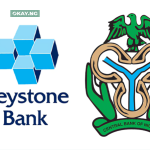Nigeria banks are demonstrating commendable progress in bolstering their capital reserves to comply with the Central Bank of Nigeria’s (CBN) recently increased capital requirements. This development, according to leading credit rating agency Fitch Ratings, is not only reassuring for the sector’s stability but also paves the way for sustained business growth.
The CBN’s directive, issued in March 2024, mandated a substantial increase in minimum paid-up capital for various banking categories. This presented banks with three primary avenues for compliance: equity injections, mergers and acquisitions (M&A), or a downgrade of their operating licenses.
“Fitch-rated banks have largely embraced the challenge and are actively pursuing capital-raising strategies,” the report stated. “While the deadline looms – the end of the first quarter of 2026 – most institutions are on track to meet the new thresholds.”
This proactive approach is particularly encouraging, considering the recent impact of naira devaluation, which significantly eroded capital ratios. By strengthening their capital buffers, banks are better equipped to navigate the complexities of the Nigerian operating environment, including potential regulatory interventions and further currency fluctuations.
While the overall picture is positive, the pace of progress varies across the banking landscape.
- Tier 1 Success Stories: Leading players like Access Holdings and Zenith Bank have already secured the substantial capital required for an international banking license.
- Phased Approach: Other major players, including First HoldCo, United Bank for Africa, and Guaranty Trust Holding Company, are adopting a more gradual approach, with recent capital raisings serving as the first step towards fulfilling the N500 billion requirement.
- Challenges for Smaller Banks: Second-tier banks, such as Fidelity Bank and FCMB Group, face a steeper climb given their smaller balance sheets.
- Mixed Progress in Lower Tiers: Union Bank of Nigeria is grappling with capital adequacy ratio (CAR) breaches, and many third-tier banks have been slower to initiate capital-raising activities.
Impact on Consolidation
The increased bank capital requirements were initially expected to trigger a wave of M&A activity within the sector. However, the success of recent capital-raising efforts has significantly reduced the likelihood of widespread consolidation among first- and second-tier banks.
Read Also: CBN Clarifies N100 ATM Withdrawal Fee
Impact on Customers
While the focus of this report is primarily on the financial health of the banks, it’s crucial to consider the potential impact on customers. Stronger capital positions should translate into greater stability and security for depositors. Moreover, increased capital can enable banks to expand lending activities, supporting businesses and individuals across the Nigerian economy. The increased capital will not only enhance the sector’s resilience but also provide the necessary fuel for sustainable business growth. This is a positive development for the Nigerian economy as a whole, as a strong banking sector is crucial for supporting economic activity.
The strong investor appetite has been a key factor in the success of these capital-raising drives,” explained [Your Name]. “This positive market response has enabled most banks to meet their capital needs without resorting to mergers.
While the current trajectory is encouraging, challenges remain. The continued volatility of the Nigerian economy, including potential inflationary pressures and currency fluctuations, will require ongoing vigilance and proactive risk management. There is no doubt that the capital raisings are a significant step forward, but they are not a panacea. Banks must continue to adapt to the evolving regulatory landscape and navigate the complexities of the Nigerian market to ensure long-term success.












